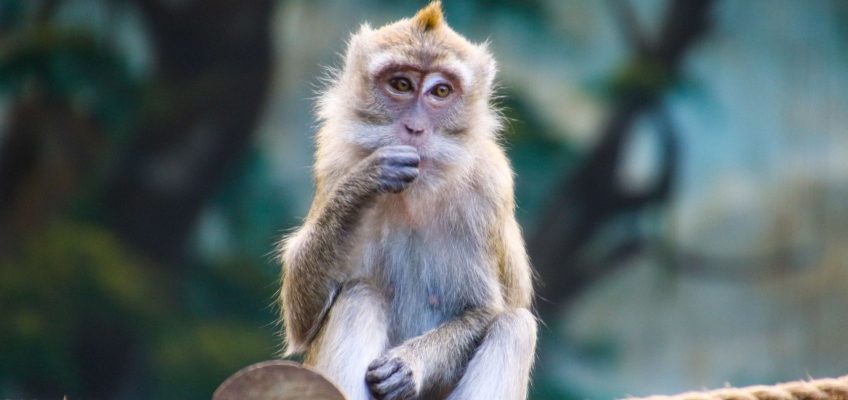If you’re going to Bali, you probably plan to visit the Ubud Monkey Forest.
In fact, you can pretty much see a wild monkey in most Asian countries … and that holds great appeal for many of us.
But do you know how to prevent being attacked by a wild monkey? What about if you do fall victim – do you know what to do?
Sadly, many tourists misread wild monkey facial expressions. A wild monkey which appears to be smiling, pouting its lips or baring its teeth is not friendly. Many tourists mistakenly think that the monkey is smiling or blowing a kiss. Nothing could be further from the truth as these are all signs of aggression.
So what can you do to minimise the risk of being attacked by a wild monkey?
Obviously the best preventive measure is to refrain from visiting venues where monkeys are free to interact with humans. To be fair though, the chance to see monkeys up close and personal is something many of us want to do and so here are a few tips to help reduce the risk of being bitten and/or exposed to diseases such as Rabies and Herpes B.
- Try to avoid making eye contact and do not smile at a wild monkey. To a monkey, showing your teeth is a sign of aggression and threat. Similarly, don’t yell at a monkey or otherwise tease / heckle it. Take care with your body language and don’t make sudden movements – any perception of aggression or threat will increase the chance of a monkey attack.
- Take care with your outfit. Don’t wear jewellery or anything shiny. If you have piercings, remove them. Long hair should be tied up and avoid wearing specs or sunglasses. Also if you can, try not to carry bags, purses or cameras – these items can be irresistible to a monkey.
- Keep a reasonable distance between you and the monkey. Remember, they are wild animals and they can be very unpredictable. Some species can be very strong and you may be a poor match for an aggressive monkey.
- Do not feed wild monkeys. In fact, try not to have any food in your possession. Monkeys have an incredible sense of smell and even if you’re carrying packaged food, they will probably smell it. Also, feeding a monkey is sure to bring others into your immediate vicinity and this could spell disaster.
- If you are inclined to take a photo, take special care. Monkeys having seen their reflection in a camera lens have been known to attack simply because they are threatened by their reflection.
- Keep an eye on the monkey. Its body language will give you vital clues. If the monkey is smiling, baring its teeth, blinking or yawning, this is a good indication that it feels threatened.
What to do if you are attacked?
- Do not run away or show fear – this will just tell the monkey that you are inferior and their aggression could intensify. Back away slowly, don’t turn your back on the monkey but do avoid making eye contact.
- Show the monkey that you are not holding anything in your hands. Many monkeys attack because they think you are withholding food. If you have none, show them your empty palms. If you do have food, throw it in their direction – but not at them.
- Most of all – don’t panic. Stay calm and walk away, the monkey will lose interest in you if you proceed in this manner. Don’t scream or try to fight off a monkey.
- If a monkey tries to steal something from you, let them have it. It’s likely that once they have it, they will drop it and you will be able to recover your property. Monkeys are curious and mischievous by nature so anything loose or with straps is at risk. Of particular interest are bags, sunglasses, jewellery and cameras.
- If you suffer an injury, wash the wound with soap and water and seek medical attention. Monkeys often carry life-threatening illnesses such as Rabies. Get yourself to a doctor without delay.
There is no doubt that seeing a wild monkey is an amazing experience. With a little care and forethought, the experience will be memorable for all the right reasons and not because you came off second best!
Got questions about wild monkeys and travel insurance? Why not call us on 1300 819 888 or send an email to info@goinsurance.com.au



Monkey Attacks on the Rise at Tourism Hotspots—How to Stay… - GoWanderGuide
[…] a monkey starts to attack, travel insurance company Go Insurance advises showing the animal your empty palms to indicate you don’t have food—or, if you do have […]